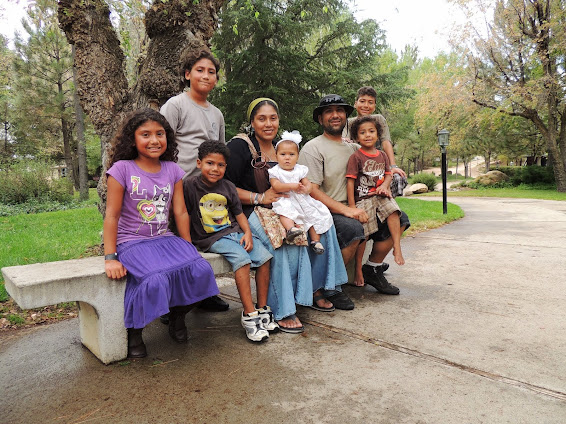We all have big emotions. Especially our children!! Here are some suggested ways of helping our children deal with their big emotions.
General Tips:
Have you tried doing angry dances? Do you state your feelings out loud? I will tell my children, "I am starting to get angry. I am frustrated that you are doing . . . . You need to stop yourself." And I very very rarely actually get to where I'm saying, "That's it, I'm angry." I've learned all the little levels before that and we can usually resolve things before it's too late. You knowing how to work through your feelings is a major need before you can model it. So like homeschooling, learn with her :)
I've found one of the best helps is watching me respond appropriately to my own feelings. I've realized how important it is to vocalize my thoughts and feelings. I am sure to say out loud, "this project is frustrating me. I need to take a break!" or something similar.
Identifying the feelings is the biggie, but you also need to be teaching her things she *can* do when she's got big feelings. Drawing pictures, creating songs or dances that express her feelings. Have you created a *Comfort Corner* yet? Make sure you teach her about when her body is saying she needs space tosort through feelings.
I think the key here is to remember that nothing will make the feelings go away. You can do things that shove them underground where they come out later in other ways, or you can take the time to teach her how to process and handle them herself. Either way the only way to get through this stage is to bide your time and do what you can to keep the relationship in tact :) What will be different is the relationship you have with her on the other side of this stage! And you can do it.
When she starts acting out I'd simply say to her, "You are having big feelings. This is your body's way of saying you need to take a break. Would you like to find a quiet place alone or would you like to sit in my lap?"
We do a lot of labeling emotions, but the only ones DS really labels himself are happy and sad. I acknowledge his feelings, give him a word for them, and allow him to experience them within reasonable and safe boundaries. I can't tell you how many people have looked at me like I was nuts because I was on my knees at his's eye level, in Target or the grocery store, speaking gently to him and letting him feel his big feelings. I say something like "I know you want that toy really badly, and you are really MAD because Mommy said no. It is so hard when you want something! I know you are mad, but you may not hit me (or throw things, or whatever)." I usually don't try to pick him up and take him out right in the middle of it, because that makes it worse, and I end up getting hurt! I allow him his feelings, stay close and offer support and hugs if he needs them, and take him out when he has calmed down a little
Let your child know you hear him, then offer the appropriate choices. For example, your child wants cereal, but cereal is not an option, for whatever reason. First tell him what you hear him saying. "You really want cereal." Then you can add, " You may have cereal another time. Right now your choices for food are _____ or _____. Which would you like?"
Crying is definitely an appropriate release for big emotions. Drawing a picture. Talking about it. Talking to someone else who has felt/is feeling the same thing. Telling stories from our childhood when similar things happened to us. Doing an angry/sad/etc dance. All of these help release the built-up emotions inside.
As for when and if he starts screaming at you I would keep it simple. "I don't like to be talked to this way. I am going to walk away and you may come talk to me when you can be kind." Then you don't have to walk very far away, even to the other side of the kitchen, but let him know that you won't be abused that way. This also helps teach our children that they don’t have to stay in a situation where they are being hurt (by another person’s body or words).
If her feelings provoke her to screaming or being too physical, I patiently and emphatically repeat our house rules and remind her of alternatives to express her emotions.
I'm also careful to avoid the triggers that tend to intensify her emotions. If she is hungry, tired or thirsty, of course she is much more likely to be experience big feelings. Also, if we've been mostly indoors one day, I think 'cabin fever' exacerbates emotions, so we try to spend a good chunk of time outdoors in fresh air.
Many big emotional outbursts are due to not having enough time to comfortably transition. So, I remember to give her ample warnings (for nearly everything. . . if I'm nearing the end of a read aloud book, I might pause with an aside that we have 3 more pages to read, and then I'll be standing up and walking to the kitchen
The Comfort Corner
It's a corner of the main living area where you might put pillows, a blanket, a small rocker or the glider, some books, stuffed animals--whatever! Let the kids help decorate it with what give them comfort. And if they're getting out of control you can suggest they go there to cool off. Jane Nelson calls them "Positive Time Outs" but Joanne thought the Comfort aspect was more AP. There's also the option of asking mom to go with you and making it cuddle time. And I definitely make a point of telling the kids when I have to take a break and get it together.
With a pre-verbal toddler, you can say: "You're very upset. Let's go nurse in our special place." Then when he's old enough to go on his own you can just help him set up his own *special place*
Dealing With Sadness:
"I know you're sad." Just acknowledging her feelings helps!
I tell her it's okay to cry if she needs to. I add that we all need to cry sometimes.
I offer hugs and cuddles.
For sadness I reflect the feelings, "You are sad" and offer comfort, "Do you want me to comfort you?" This way they get to decide if they want to handle it themselves or with me.
If they are getting out of control I will tell them, "You may be sad, but you may not . . . (scream, hit, whatever)." If it gets too bad I'll insist on a bear hug so I can help them handle their sadness.
I try to validate her feelings. I feel this is the most useful approach. If I say something like, "We can buy another toy" when her toy breaks, it does not help! If I say, "I know you're really sad that your toy broke. Sometimes we just need to cry when we're sad", then she feels better. She knows that her emotions are okay to experience, and she is learning proper releases for those feelings.
Dealing With Anger:
Anger is a secondary emotion. The primary emotions behind anger are frustration, sadness, fear, and disappointment. The best way of coping with anger is to work very hard to identify the primary emotions before they get so big that they erupt as anger. Of course, when I don't catch it in time I try not to raise my voice and to gently touch--very counter to what I'm feeling, but very effective and my way of acting *as if* Remember…fake it till you make it. Sometimes our feelings follow our actions!
When we don't catch the sadness and disappointment, and it escalates to anger, usually I offer comfort/snuggling or suggest quiet, alone time. I wouldn't suggest quiet, alone time to a child who seesthis as punitive, so it is important to know our children. And we certainly need to avoid making them think they have to leave when they're really angry or experiencing emotions we "don't like". But sometimes she just needs some quiet time.
On Frustration:
I try to notice when DD is getting frustrated and stop it before she becomes angry. If she's trying to do something that's difficult, I'll acknowledge that what's she's doing is hard. I also tell her to let me knowif she wants my help, although I do have to catch myself to make sure I'm not offering help too soon.
I've found that if I quietly step in and ask her if she'd like to take a break and read a story (or go downstairs and unload the drier with me, or check the mail, or a few other things like that), she'll usually sigh in relief and say "yes". At that point, once she is somewhat removed from the situation, we can reflect her feelings.
I always try to remember is that anger and frustration are valid emotions they should be allowed to have and not expect them to be "jollied" out of it or for them to deny them. Sometimes, I wait calmly nearby and let the storm blow. Sometimes I grab a child in a bear hug. Sometimes, they are not so set off that distraction will work. You just have to know your child well enough to know what they need!
On Disappointment: Lots of times our children have specific ideas on how something should happen. Maybe they are planning on opening the door or going through first. Or they want to turn the light on. But then, we the parent, do it differently. And the child is upset. Sometimes we can do a “do over”, where the situation is repeated and the child gets to do it their way
When that’s not an option, offering to do it their way next time might help. Oftentimes, at this suggestion, the child will say no and the parent will say, “Ok, you don’t have to do it that way next time.” At that suggestion, the child might be ok to say they will do it their way next time.
For many children, a “do over” or a “do next time” simply won’t work. One thing that might work is proactively giving her choices, before I do something. I ask her very often if she would like to do something herself, or if she would like help.
On Hitting: The reason for the punching (and other physical ways of acting out) is easy--all those very big feelings arebuilding up until they erupt out of her fists (feet, etc). For this reason when you see her getting more intense with her feelings you need to be on hand to intervene if she goes to hit. Grabbing her hand firmly and stating clearly, "Hitting hurts. We do not hurt with our hands. You may . . . . (whatever she can do instead)."
Basically what I'd do for her is take her hand in mine and tell her, "Hands are not for hurting people. Nohitting. Hitting hurts." Then I'd apologize to her child who she hurt and ask her if she meant to hurt her. If not then I'd encourage an apology (never force, but encourage :) ) and if she did then I'd tell her thathurting is not allowed and they can play apart until they can play together again. This would be a good time to suggest she find someplace to be alone until she can be social again.
Oct 27, 2004
Unless someone care's

Compassion
Compassion Verse
"Lifehouse Anything Skit"
Our Mighty Arrows
















0 comments:
Post a Comment